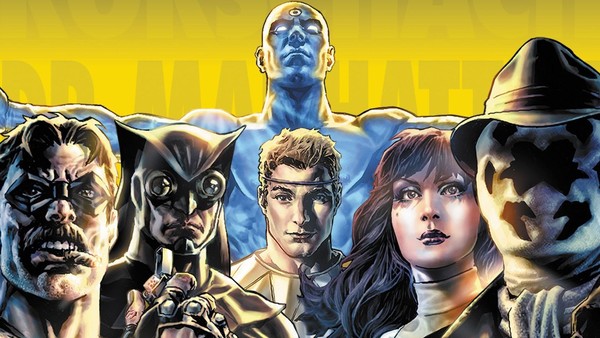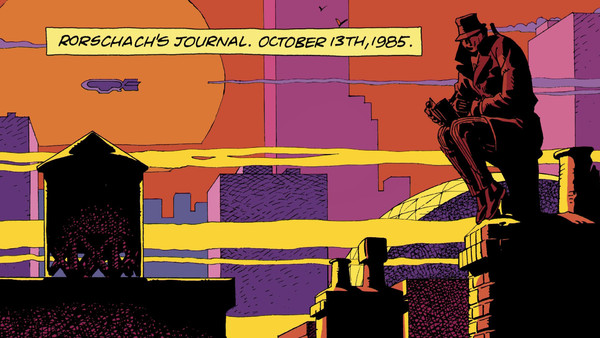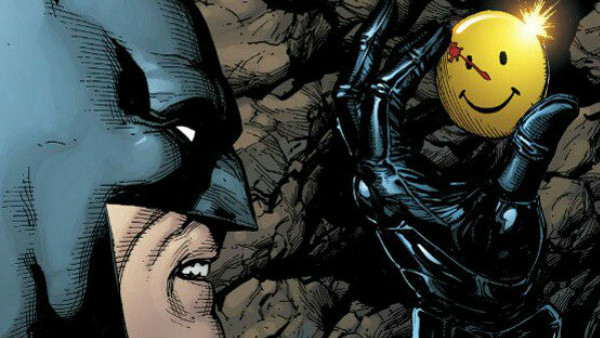6 Reasons Watchmen Should Stay Out Of The DC Universe
It’s not too late to abandon the whole idea...

Watchmen is one of the most important comic book series of all time. Originally published as 12 issues in the mid 1980s by DC Comics, it showed how mature both comic books and superhero stories could be by offering morally ambiguous characters, dark themes, and a complex plot.
Whether you accept its position as one of the most significant publications of the 20th century or see it as a highly overrated mess, its impact on the industry and medium can not be denied. Combined with the slow, but steady increase of grim and grit brought by books like The Dark Knight Returns, Swamp Thing, and across the aisle like Uncanny X-Men and Daredevil, superhero comics can neatly be delineated as before Watchmen and after.
The darker subjects were not the only contribution of this landmark work. Writer Alan Moore and artist Dave Gibbons advanced the medium in ways that are still felt today. Moore painstakingly detailed the density of the images he wanted drawn in lengthy panel descriptions given to Gibbons, who was talented enough to bring those intricate details to life. Gibbons’ masterful use of the nine panel grid format for his page layouts gives the series a sense of uniformity that is explicitly deliberate. One gets the sense that there is not a single brush stroke out of place throughout the entire story.

Since it has become so monumentally popular and its characters so famous in their own right, it’s easy to forget that Watchmen was originally intended to relaunch the stable of heroes DC had then recently acquired from Charlton Comics. When Moore submitted a pitch for a story that would render all of the characters unusable, DC editor Dick Giordano wisely suggested original characters be created to function as their analogues: Objectivist wet dream The Question became the lunatic Rorschack; tactically trained Peacemaker became the gun-nut Comedian; geeky Blue Beetle became ineffectual Nite-Owl; cosmically powered Captain Atom became omnipotent Dr. Manhattan; enigmatic Nightshade became seductive Silk Spectre; renaissance man Thunderbolt became… renaissance man Ozymandias. Even from the beginning, the characters of Watchmen defied inclusion: keeping them separate was the smarter choice. In fact, the story of Watchmen could only be told in a universe that’s entirely separate from the DC Universe where Batman and Superman reside.
(It’s worth noting here that Grant Morrison’s recent Multiversity story, Pax Americana, functions as a quasi-retelling of Watchmen, featuring the Charlton characters and packed with the same type of narrative devices that made the original so compelling. Characters based on characters based on themselves: classic Morrison.)

Last year’s DC: Rebirth, written by DC Golden Boy Geoff Johns, hinted at the possibility of adding the Watchmen characters to the DCU: Batman finds Comedian’s blood-stained badge (the most iconic symbol of the Watchmen series, without a doubt) in the Batcave; a mysterious blue hand seems to be responsible for all of the current continuity trouble; and Pandora, who is essentially the mascot for the New 52, was disintegrated in a manner very similar to how Rorschack dies in Watchmen.
There is also a theory that Mr. Oz, the mysterious figure popping up in Action Comics, is really Ozymandias, but definitive proof has yet to be offered. A recent tweet from Johns set the community abuzz as he threatened to write comics featuring characters from Watchmen in 2017.
But adding Rorschack and friends to the DCU is a huge mistake and it’s not too late to abandon the whole idea...